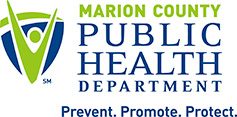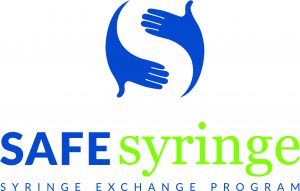Safe Syringe provides free, anonymous harm reduction services that include:
· Syringe exchange
· Sharps disposal
· Naloxone (Narcan) distribution
· Overdose response training
· Harm reduction education
· Peer recovery coaching
Vision
Safe Syringe envisions holistic healthcare services that motivate individuals to lead the healthiest lifestyle possible, recognize individuals as the experts of their own lives, and are free of stigma and discrimination.
Mission Statement
Safe Syringe seeks to improve the well-being of persons who inject drugs in Marion County by utilizing participant-centered services and evidence-based interventions to reduce high-risk behaviors and enhance access to healthcare services, including recovery programs.
Values
Safe Syringe emphasizes:
- Compassion: Suspend judgment to appreciate another individual’s perspective and situation in order to better address that individual’s needs.
- Autonomy: Recognize individuals as the primary agents of change and experts in their own lives.
- Beneficence: Seek to promote the good of others by helping individuals to enhance their well-being and prevent potential harm.
- Health and dignity: The quality of both individual and community health sets the standard for interventions and program policies.
- Pragmatism: Illicit drug use is a part of our world. Without attempting to belittle the danger associated with illicit drug use, Safe Syringe works to minimize the harmful effects of illicit drug use.
- Participant-centered services: Services should be provided in a non-coercive, nonjudgmental manner that is accessible and appropriate to each individual.
On April 10, 2019, Marion County Public Health Department joined community leaders, partners and supporters for the unveiling of a mobile unit that will be used to operate the county’s first syringe service program.
The Richard M. Fairbanks Foundation awarded a three-year, $1.45 million grant to the county to help fund the program.
The Safe Syringe Access and Support (SSAS) Program will reduce the growing number of hepatitis C infections in the county and prevent an HIV outbreak. Studies show that participants in a syringe exchange program are five times more likely to enter drug treatment than people who do not participate in the program.
The Safe Syringe Access and Support (SSAS) Program will reduce the growing number of hepatitis C infections in the county and prevent an HIV outbreak. Studies show that participants in a syringe exchange program are five times more likely to enter drug treatment than people who do not participate in the program.
The number of persons who inject drugs in Marion County is rising significantly, leading to a future burden of costly chronic diseases spanning their lifetimes and beyond. Current measures aimed at injection drug abstinence have been inadequate – surveillance, evaluation activities and secondary prevention programs have failed to avert hepatitis C transmission through intravenous (IV) drug use.
Marion County is now faced with implementing harm reduction strategies to minimize the adverse outcomes of injection drug use while promoting the overall health and safety of injection drug users and their families. For individuals who will not or cannot stop injecting drugs, the one-time use of sterile syringes is the safest, most successful method for limiting the transmission of blood-borne infections.
Surveillance by the Marion County Public Health Department shows a greater than 10-fold increase among all individuals acquiring acute hepatitis C in Marion County in 2017. Doctors and public health officials fear increased IV drug use may also lead to a severe HIV outbreak, similar to what transpired in Scott County, Indiana where health officials diagnosed over 200 new cases of HIV from 2015-16 which historically reported fewer than 5 cases annually.
Syringe exchange programs are proven to be effective at reducing the rates of hepatitis C within communities while preventing outbreaks of HIV. The health department’s SSAS Program works to reduce the spread of infectious disease throughout the community while offering additional support services to participants, such as engagement in substance abuse treatment, health care navigation and overdose prevention education.
In response to a growing number of overdose deaths and the escalating rate of hepatitis C virus (HCV) transmission related to injection drug use, Marion County Public Health Department (MCPHD) launched the Safe Syringe Access and Support (Safe Syringe) Program in April 2019. Thirty years of research has proven that syringe service programs (SSPs): (1) reduce the rate of human immunodeficiency virus (HIV)1 and HCV;2 (2) increase enrollment in substance use disorder (SUD) treatment; (3) reduce high-risk behaviors in persons who inject drugs (PWID);3 and (4) do not lead to an increase in crime or drug use in the communities in which they operate.4 Participants in SSPs are up to five times more likely to engage in recovery services than non-participants and three times more likely to stop injecting drugs when comprehensive services are available.5
Participation in an SSP is the first step toward recovery; persons participating in the exchange are willingly engaging in services to improve their health and wellness while gaining repeated exposure to recovery programs. Harm reduction is a practical approach to reducing the negative consequences of drug use. This strategy recognizes that abstinence, while preferred, is not always feasible. Rather than ignoring the harmful effects of drugs, a client-centered approach works to educate and empower PWID to practice safer use while widening the window for rehabilitation.6
Safe Syringe creates an additional entry point to treatment for individuals who are at high risk for overdoses and criminal justice involvement. Regional challenges to address the opioid crisis include limited access to a hidden population of persons who use drugs that may not yet be involved with the justice system or engaged in medical care. While most interventions involving
SUD treatment occur when a person is either facing legal ramifications or medical treatment for an overdose, participation in Safe Syringe allows individuals to pursue treatment on their terms in a non-judgmental, non-coercive environment. According to The Journal of the American Academy of Psychiatry and Law, “sustained abstinence from substances of abuse is consistently predicted by a patient’s motivation to sustain abstinence, demonstration of self-help behavior and beliefs, and perceived self-efficacy.”7
Safe Syringe is uniquely capable of connecting with PWID in non-traditional ways, promoting treatment engagement, and linking individuals to beneficial community resources. The goals of Safe Syringe include (1) reducing the incidence of infectious diseases; (2) linking participants to appropriate care; (3) reducing emergency department (ED) visits; and (4) facilitating access to substance use and mental health services.
The program operates in both storefront locations as well as a mobile unit traveling to vulnerable neighborhoods throughout Indianapolis. On-site services include syringe exchange, naloxone distribution, and peer recovery support. Testing for sexually transmitted infections, human immunodeficiency virus (HIV), and hepatitis C and targeted immunizations are provided at no cost at various locations. The program staffs two full-time peer support specialists to operate the exchange and a part-time administrator to provide oversight and maintain community relationships. Since launching in 2019, the program has expanded to include four storefront locations and one mobile unit location, with an additional storefront location confirmed for 2024.
Since launching in 2019, Safe Syringe has served 4,281 clients at 22,668 visits to provide harm reduction resources and link PWID to necessary healthcare and social services. Through this program, clients have reversed more than 3,461 overdoses, and 446 clients have worked with a peer recovery coach to advance their goals towards treatment for substance use disorder. Over 1,050 clients have utilized MCPHD’s confidential wraparound services, including STI testing through Bellflower Clinic and immunizations through Community-Based Care.
At the time of the program’s launch in 2019, acute hepatitis C rates in Marion County had increased tenfold from 2012 to 2013 to 2018 to reach 8.5 per 100,000 population with 95% of cases related to substance use. In 2023, the acute hepatitis C rate was reported to be just 3.3 cases per 100,000 population with 91% related to injection drug use. 8 HIV trends remain focused on sexual transmission; the rate of HIV transmission in 2023 was found to be 16.1 cases per 100,000 with 3.1% of cases reporting injection drug use; in 2018, an average of 6.4% of cases reported injection drug use with a rate of 21.4 cases per 100,000. While the introduction of fentanyl as the primary illicit opioid on the street exacerbated the already tolling opioid crisis, overdose fatalities plateaued for the first time since 2018 last year at 801 deaths in Marion County; 76% of overdose fatalities were attributable to fentanyl.9 Testing of syringes collected from Safe Syringe at the Indiana Department of Health laboratory demonstrate that 70 to 97% of all syringes are positive for fentanyl, and xylazine has been present in 50-60% of all syringes since February 2022. Heroin was found in only 9% of syringes by November 2022.10
A cost-effectiveness analysis conducted by Myers and Stauffer LC estimates a cost savings of up to $4.2 million per year in HIV and HCV treatment costs at the program’s goal of reach one out of three people who inject drugs in Marion County. A study conducted by Indiana University in 2016 estimated that between 0.2 and 1.6 percent of Marion County has injected drugs at some time11; the US. Census Bureau population of Marion County (968,460 in 2023) would then place a range of 1,936 to 5,165 people within having injected drugs at least once during their lifetime. With Safe Syringe having served over 4,500 clients in its five years of service and actively engaging over 1,500 clients each year, the program should easily continue to meet the goal of reaching one-third of the population of people who inject drugs (an estimated range 645-5,165 people) over future years. The program has expanded to include two key partnerships with the Damien Center and Step Up, Inc. to form the Indianapolis Harm Reduction Team, allowing for increased reach into marginalized populations of PWID. Through these vital partnerships and others, Safe Syringe hopes to continue widening its reach to improve the quality of life for people with substance use disorder in Marion County, while saving costly healthcare providers.
The Centers for Disease Control and Prevention (CDC) supports that syringe exchange programs:
- Curtail drug use
- Reduce needlestick injuries among first responders
- Decrease overdose deaths
- Reduce new HIV and viral hepatitis infections
- Save tax and health care dollars by preventing overdoses and new HIV/hepatitis C infections
The SSAS Program ensures people who inject drugs have access to clean syringes to prevent infections, keep used needles off the streets and connect individuals with needed health services. Community sites are based on overdose deaths by location, residences of decedents, Indianapolis EMS use of Narcan, and recommendations by the Indianapolis Metropolitan Police Department.
CDC How to Use Naloxone Nasal Spray (YouTube)
CDC How to Use Injectable Naloxone (YouTube)
Locations and Hours of Operation
Monday
12:30 pm – 3 pm
South District Health Office 2nd Floor
7551 S Shelby St
Indianapolis, IN 46203
Tuesday
12:30 pm – 4:30 pm
Corner Exchange (Front Entrance)
1434 Shelby St
Indianapolis, IN 46203
Thursday
9:30 am – 4:30 pm
Corner Exchange (Front Entrance)
1434 Shelby St
Indianapolis, IN 46203
Friday
11 am – 3 pm
Brookside Community Church Parking Lot (Mobile Unit)
1035 N Olney St
Indianapolis, IN 46205
Bell Flower Clinic offers free STI testing every other Friday from 11 am to 1 pm.
Contact Information
(317) 221-2378
www.marionhealth.org/safesyringe
Follow us on Facebook!
www.facebook.com/safesyringe
Marion County Public Health Department has partnered with community organizations to expand syringe services. The Indianapolis Harm Reduction Team includes Safe Syringe Access and Support, the Damien Center, and Step Up, Inc.
Check out our Partner Locations:
Damien Center:
26 N Arsenal Ave
Indianapolis, IN 46201
Monday Tuesday Wednesday Thursday
12 pm – 4 pm 2 pm – 6 pm 2 pm – 6 pm 12 pm – 4 pm
Step Up at Aspire Health Indianapolis
Monday
2 pm – 6 pm
2506 Willowbrook Pkwy
Indianapolis, IN 46205
Resources
Frequently Asked Questions: Safe Syringe Access and Support (SSAS) Program
Five Year Report for Indianapolis and Marion County City-County Council
Proposal for Indianapolis and Marion County- City Council
To learn more, please visit www.marionhealth.org.
If you are a program participant and would like to submit feedback for program improvement, please email the program manager at MWeintraut@MarionHealth.org
**If you are unable to attend a public meeting and would like to make a comment, please click here.**



